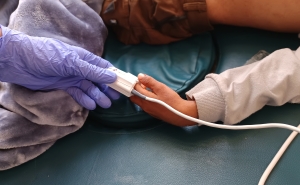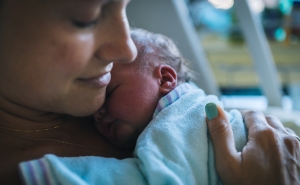Johns Hopkins Researchers Receive Grant to Incorporate Human Behavior into Infectious Disease Models

Researchers at Johns Hopkins University received a $1 million multi-disciplinary modeling grant from the National Science Foundation to improve the accuracy of infectious disease models by incorporating human behavior into the models. The grant is a cross-University grant that incorporates expertise in economic theory, sociology, human behavior, and systems engineering. The project will be led by experts from the Bloomberg School of Public Health, Whiting School of Engineering, Kennedy Krieger School of Arts & Sciences, and School of Medicine.
While traditional epidemiological models map the spread of a disease through a population and the impact implementing interventions such as vaccination have on the spread, diseases such as COVID-19 have brought to light the limitations of using models that do not factor in individual human behavior, such as recommendation compliance, competing economic and health concerns, and social interaction on disease transmission. As humans do not uniformly respond to health interventions—such as masking to prevent the spread COVID-19—incorporating human behavior into models can improve their usefulness in informing policy decisions. Additionally, explicitly incorporating insights from economics can highlight the tradeoffs between interventions that may improve COVID-related health at the expense of household welfare consequences for the more economically disadvantaged.
Project researchers will develop a modeling framework that maps how human behavior affects exposure to and the spread of pathogens during a disease emergence and outbreak. In addition to mapping how a disease spreads within a population, the new model will capture the economic impact of proposed policies and the impact of individual-level behavioral responses on a disease’s trajectory. The model will also help to improve health equity by predicting the disparate impacts proposed policies will have on different socioeconomic groups.
“We hope that the new modeling framework will help inform policies proposed to mitigate future disease outbreaks by explicitly accounting for economic and other considerations directly weighed by individuals every day, with the end goal of formulating a more equitable response,” says Bryan Patenaude, ScD, MA, assistant professor in the Department of International Health at the Bloomberg School and co-lead on the project.
Specifically, the project aims to:
- More accurately predict disease spread and health outcomes during an outbreak, epidemic, or pandemic
- Evaluate policies proposed to address a particular outbreak by quantifying both the disease burden of the outbreak and the economic cost associated with the policy, allowing for a cost-benefit analysis of disease mitigation polices
- Evaluate equity by quantifying the impacts of disease burden and economic cost across different socio-demographic and risk groups
The project, Modeling Dynamic Disease-Behavior Feedbacks for Improved Epidemic Prediction and Response, is a three-year grant that starts on October 1, 2022. In addition to Patenaude, leads on the project include Lauren Gardner, PhD, MSE, Alton and Sandra Cleveland Professor at the Whiting School of Engineering, Alison Hill, PhD, MPH ’20, assistant professor at Johns Hopkins Bioengineering, Nicholas Papageorge, PhD, MA, Broadus Mitchell Associate Professor of Economics at the Kennedy Krieger School of Arts & Sciences, and Shaun Truelove, PhD ’17, MPH, assistant scientist at the Bloomberg School of Public Health.
Read more on the grant from the National Science Foundation.





